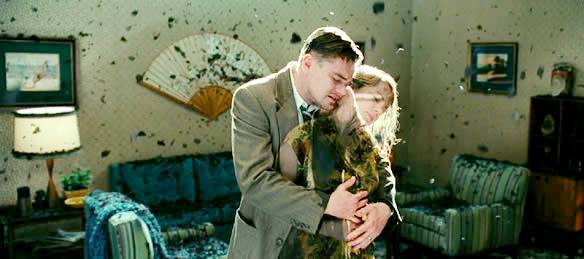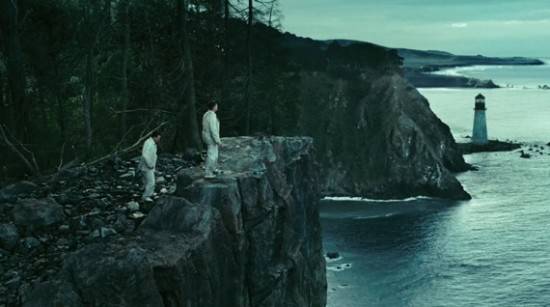 Shutter Island is based on the same-titled novel by Dennis Lehane and adapted as a screenplay by Laeta Kalogridis. Directed by Martin Scorsese and starring his frequent muse, Leonardo DiCaprio who has been featured in previous Scorsese vehicles including Gangs of New York, The Aviator, and The Departed, one would feel that box office success was inevitable. While their collaboration has proved profitable, something about the film doesn’t gel—and consequently sell—to the public. The film is a story within a story that gets uncovered layer by layer and while I appreciate the intelligence that they are assuming into their audience, it seems that there are some noticeable gaps and stretches of reality that don’t have the story quite piecing together and being rendered believable.
Shutter Island is based on the same-titled novel by Dennis Lehane and adapted as a screenplay by Laeta Kalogridis. Directed by Martin Scorsese and starring his frequent muse, Leonardo DiCaprio who has been featured in previous Scorsese vehicles including Gangs of New York, The Aviator, and The Departed, one would feel that box office success was inevitable. While their collaboration has proved profitable, something about the film doesn’t gel—and consequently sell—to the public. The film is a story within a story that gets uncovered layer by layer and while I appreciate the intelligence that they are assuming into their audience, it seems that there are some noticeable gaps and stretches of reality that don’t have the story quite piecing together and being rendered believable.
The year is 1954 and America is in some regards still recovering from the wounds inflicted during WWII. Leonardo DiCaprio stars as Teddy Daniels, a war veteran turned US Marshall sent to Shutter Island to investigate the disappearance of a criminally insane woman, Rachel Soldano, who has escaped from a locked psychiatric ward and is now presumably running rampant on the island. Along with his new partner, Chuck (Mark Ruffalo), they arrive at Shutter Island and immediately find their authority challenged by the police officers stationed there who order them to surrender their firearms. Their efforts to try to solve this mysterious disappearance are continually thwarted by the inexplicably guarded Doctor Cawley (Ben Kingsley) and the head of operations, Dr. Naehring (Max Von Sydow) who are reluctant to allow them access to medical records and to interview staff and patients that may provide vital clues to their case. As Teddy struggles to piece together the limited information he has gathered regarding Rachel’s unexplained disappearance and as a hurricane rages, cutting off communication to the mainland he is haunted by his own personal demons, including visions of his deceased wife (Michelle Williams) and images from his days as a soldier liberating the concentration camp Dachau. Teddy struggles to retain his professional focus and contend with his own personal issues, but the line between what is reality and what is fiction becomes ever changing. The nature of sanity and the nature of madness become somewhat debatable as Teddy is forced to examine the trajectory of his own life as his own personal traumas begin to rise to the ugly surface.

The big reveal at the end leaves one gasping—not with surprise but more with incredulity, trying to understand the leaps in logic that have taken place thus far. And while it is a worthy aim, the pay-off seems to fall a little short on the check. DiCaprio is a worthy actor, caught in a film maze of twists and turns, that don’t quite connect to the center, leaving the viewer alone and adrift on Shutter Island. It would be advisable to the viewer to sit this one out on the shore.
Shutter Island is now playing at the Beverly and Savoy cinemas.








